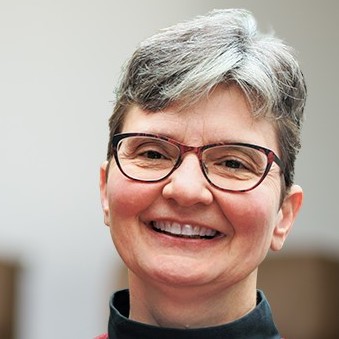Value Capture CEO Ken Segel recently was a guest on “My Favorite Mistake,” a podcast hosted by Mark Graban. As Mark describes his podcast, guests talk “about their favorite mistakes because we all make mistakes, but what matters is learning from our mistakes instead of repeating them over and over again. So this is the place for honest reflection and conversation, personal growth and professional success.” In this post, I’ll share just a few of the many highlights of Ken and Mark’s discussion.
The Mistake
In his first year out of college, Ken held a “dream job,” as a legislative aide on Capitol Hill, working for House Representative, Howard Berman. One of Ken’s key responsibilities was supporting Berman’s role on the Judiciary Committee, and at that time, Congress was overseeing regulations being written for a three-year old immigration law. Ken and the other aides collaborating on this particular work supported members of Congress across the political spectrum; this included the conservative Senator, Alan Simpson.
Another aspect of his job was speaking with reporters, so Ken met with a reporter from USA Today newspaper. Speaking on background, which meant that Ken was providing general information and context but was not to be quoted, Ken spoke very frankly.
Here’s how he learned about his mistake.
“So we have the conversation and two days later, I get a clipping in my box. This was the days before everything was flowing over our computers via email. And the clipping is a copy of USA Today's story. And the Congressman has written on the stories, ‘see me,’ and I read the story for the first time.
And I had a quote in the story saying that Senator Simpson still treated people from whole sections of the world, including Africa, as if they were the plague, not human beings seeking a better life for their kids.”
“And you can imagine what might've gone through my head, but you know, parts of my life were passing before my eyes and it was not a good feeling, both to see that I had been quoted in this way and to see that my boss needed to see me.”
How Ken’s Boss Dealt with the Mistake
When Ken met with Berman that day, the conversation revolved around several other legislative matters. Ken finally held up the clipping and said, “Howard, didn’t you want to talk to me about this?”
Many people in a position of power probably would have dealt forcefully with a subordinate who had provided a potentially damaging quote to a national newspaper. Someone else might have yelled at Ken, or taken away some responsibilities, or even fired him.
Berman, however, said, “Yeah."
"Do you understand why that’s problematic potentially?”
Ken responded by saying he absolutely understood why and how this was a problem, and explained that he thought he was on background. Berman said all right, “just learn and forget it,” and he crumpled up the clipping and threw it into the trash.
Why Was This Ken’s Favorite Mistake?
“My deepest lessons from that mistake are really how the Congressman handled me making a mistake from an authority standpoint.... There was another lesson that I got from it, which is when I read the quote about the Senator's bill, I was not proud of it. It was in some ways sort of what I felt emotionally, and it was defensible, but it was not constructive.”
Ken also learned vital lessons about how to be a leader, and how to lead others constructively.
“I think that like many great leaders, Howard is a people developer. And he took real pride in his team and that people who were bright and wanted to help make the world a better place, were willing to work with him. And he clearly saw it as part of his role to develop us, but also, really to partner with us on these things.... I think he understood the power of people really being turned on to do great things and supported do that.”
“I will never forget what it felt like, the burden lifting as he sort of indicated how he was going to deal with it and that literally sort of putting it aside, you know, and the connection to psychological safety."
“I felt included, I felt safe to make that mistake.”
Psychological Safety and the Link to Performance Excellence
“We learn a lot from Toyota, and Toyota has this phrase that people have to be freed from the problem so they're free to work on the problem. And really beyond that, you know, required to work on the problem, anything we're part of, because we're part of it, we have very close knowledge of it.
The only way we're going to keep problems like that from happening in the future systemically, is if we really work hard together on prevention to learn from what happened and to build stronger processes together so that the people are really supported to not make that mistake.
So whether it's deepening our training, changing our procedures... for much more significant examples in healthcare to allow staff to succeed in what they want to do in caring for patients in very unsafe, high-risk systems without making errors, then, that's how we improve. So the psychological freeing is crucial."
“It is not carte blanche. It is freeing you from the fear part of it. So your obligation kicks in to be part of the improvements and the energy converts.... Most people, when given psychological safety, especially when things go wrong, respond much as I did.”
Mark then asked Ken to expand on the notion that people want to do good work, and how to tap into that.
“Coming from that very earliest experience, and then through, Mark, the things that we do together in healthcare, and those we've learned from, it is so much always about the people and how they feel and what they want to do. And what they want to do is, succeed in their work. If we think about it in healthcare, it is to help people get better. And that's what everybody gets to work wanting to do every day.”
“The great leaders in healthcare and those that have their organizations reach the highest level [are] rooted in this recognition that people aspire to succeed and to do great work and to fulfill their human promise. And that, if that's true, then our job as leaders is to inspire that, in part by picking out the right goal, that says we, as an organization, are going to learn together how to keep everyone safe - zero harm for our patients, zero harm for our staff.”
“That’s a way of making our values true, and also learning how to be excellent amidst very complex high-risk processes. So we start with the inspiration, and then we attach the learning system to that with the psychological safety to learn quickly, when things go wrong or aren't right, to bring them out into the open and to systematically analyze them, using a set of principles, make changes, and share those changes, either to recover from something gone wrong or a risk.”
The Profound Legacy of Paul O’Neill
“In a way, everything I've been talking about since the “My Favorite Mistake” story is profoundly influenced by how Paul O'Neill himself framed and taught these ideas and the evidence he created about, how by creating the right level of psychological safety and attachment to aspirational goals and then a rapid transparent improvement cycle when people really could do great things.”
“Rooted in Paul's work as a leader and his desire for all of us to recognize these truths, to take them in as leaders, formal and informal, and make them part of our lives, so that human beings and humanity can progress toward really doing the remarkable things we're capable of.”
We encourage you to read Mark’s post about his discussion with Ken and listen to the entire episode at “My Favorite Mistake,” episode 147.
Learn more about the power of aspirational goals and theoretical limits leadership.
Learn how Prisma Health leverages theoretical limits thinking to eliminate process outliers.
Check out our eBooks, which dive more deeply into Paul O'Neill's leadership approach and the lasting impact of his approach on many healthcare leaders.

Written by Melissa Moore
Ms. Moore’s responsibilities center on marketing and communications. Prior to joining Value Capture, she served as a Marketing Manager at Reed Smith, a global law firm. Other career steps include: co-founding and operating a trend-setting coffeehouse; securities lawyer; and, service and equipment sales.

Submit a comment